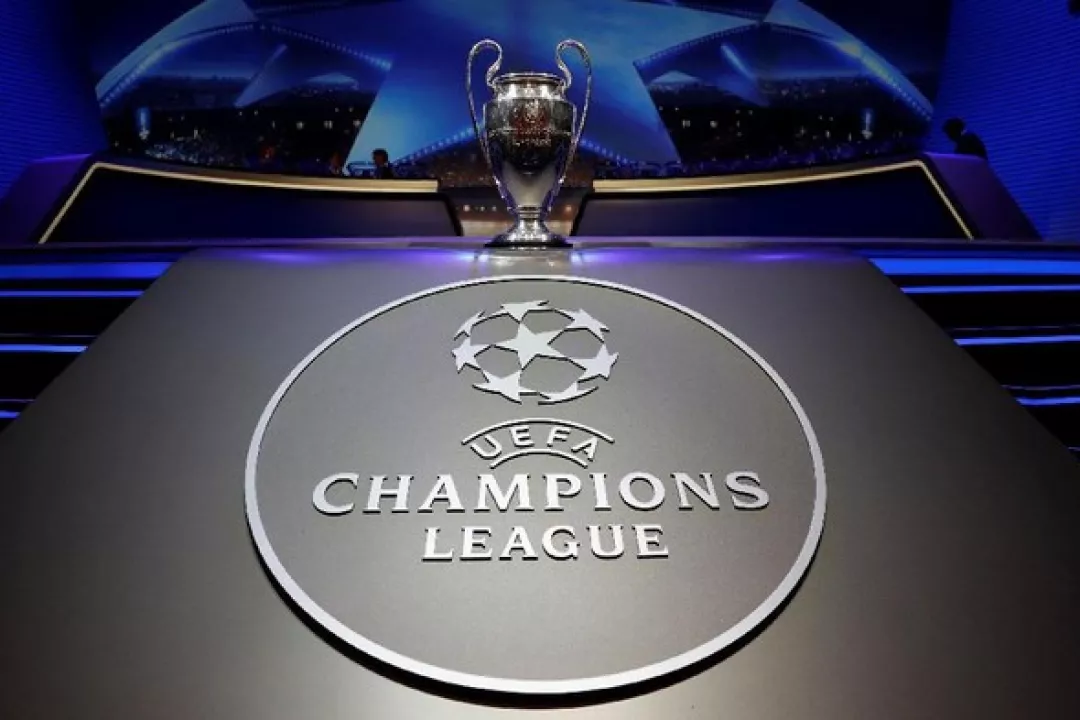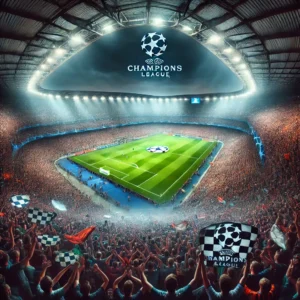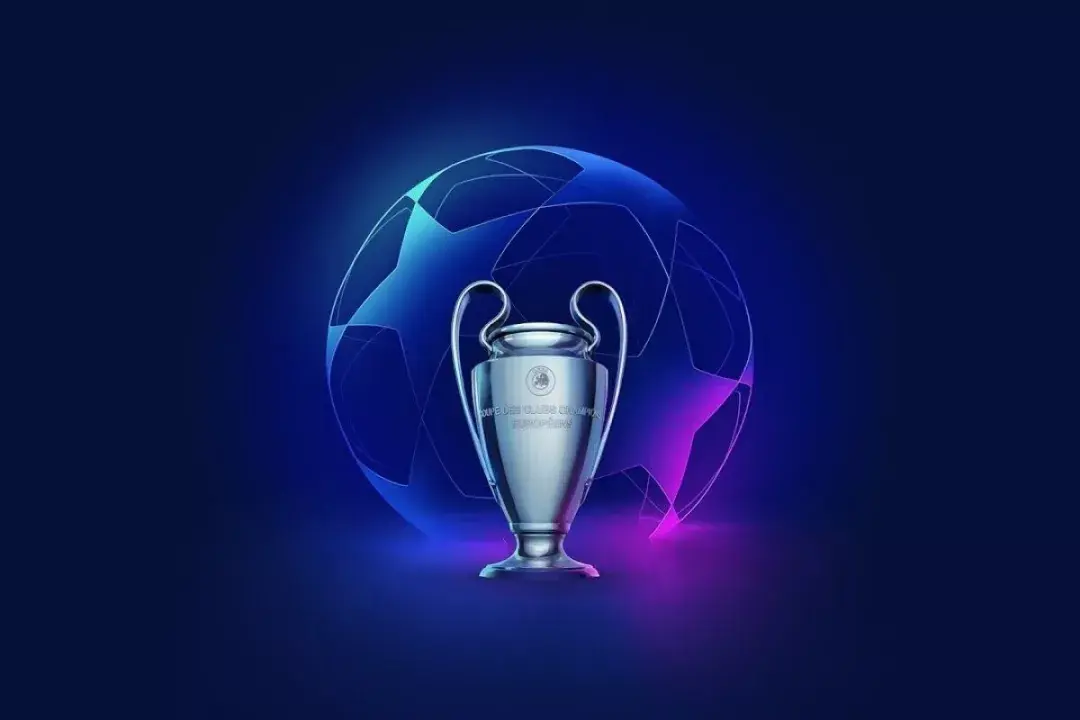Let’s be real—when you hear “Champions League,” you think of thrilling matches, legendary goals, and edge-of-your-seat moments. But what makes the UEFA Champions League so special? Why does it have millions of fans across the globe, including right here in Australia, staying up late to catch those mid-week games? In this article, I’ll break down everything you need to know about the Champions League—its history, format, the stars, and why it’s a must-watch for football fans.
What is the Champions League?

The UEFA Champions League, often just called the Champions League, is the pinnacle of European club football. It’s where the best teams across Europe face off to be crowned the continent’s top club. The tournament has been around since 1955 and has evolved into a global spectacle, with fans from all corners of the world tuning in.
And if you’re in Australia, you know the struggle of staying awake until the wee hours of the morning to catch your favourite team in action. But it’s worth it. Because when those iconic anthem notes play before a match, it’s game time—no matter what timezone you’re in.
For those new to the tournament or just looking to deepen their understanding, the Champions League format may seem complicated at first, but it’s pretty straightforward once you get the hang of it. Learn more about the official UEFA Champions League format and how it all works.
How Does the Champions League Work?
The Champions League starts with qualification rounds, where teams from smaller leagues battle it out for a spot in the group stage. Then, it’s on to the group stage—32 teams, split into eight groups of four. Each team plays six games (home and away), aiming to secure a top-two spot in their group to advance to the knockout rounds.
Once in the knockout rounds, it’s all about survival. Teams play over two legs (home and away), with the aggregate score deciding who moves on. Then, we have the grand finale—a single match at a neutral venue to crown the Champions League winner. Simple, right?
It’s like a road trip through the wild terrains of Tasmania—every match is an adventure, but you never know what surprises lie around the corner.
Why Is the Champions League So Popular?
So, why do millions, including us Aussies, stay up late or wake up early to catch this League matches? Here’s why:
- Top Talent: The best of the best compete here. Imagine the excitement of seeing Lionel Messi, Erling Haaland, or Jude Bellingham battle it out on the same pitch.
- Dramatic Matches: Some of football’s most iconic moments have happened in this tournament—last-minute winners, stunning comebacks, and heartbreaking losses.
- Prestige: Winning the Champions League is the dream of every European club. It’s the ultimate bragging right, and lifting that trophy means you’ve conquered the continent.
Whether you’re watching from Melbourne or Sydney, those matches have a way of pulling you in and making you feel like you’re right there in the stadium.
The Stars of the Champions League
If you’re into football, you know that the Champions League is where legends are made. From Cristiano Ronaldo’s overhead kick against Juventus to Zinedine Zidane’s volley in the 2002 final, this tournament has been home to some of football’s most unforgettable moments.
Current Superstars to Watch:
- Erling Haaland (Manchester City): This guy is a goal-scoring machine. When he’s on the pitch, defenders have a hard time keeping up.
- Kylian Mbappé (Paris Saint-Germain): One of the fastest and most skilful players, Mbappé can change the course of a match in seconds.
- Vinícius Júnior (Real Madrid): Known for his flair and dribbling, he’s become a key player for Real Madrid, especially in those tight European clashes.
Each season, new names emerge and old stars shine again, making it worth keeping your eye on each match.
Australian Fans and the Champions League
For football fans in Australia, the Champions League is a late-night affair. Games kick off around 4-5 AM AEST, so it’s not unusual to find fans streaming matches before heading to work or school. And let’s not forget the dedication—setting alarms, brewing coffee, and pulling out that team jersey, even if it’s pitch-dark outside.
Plus, there’s always that sense of connection. Even though we’re thousands of kilometres away from Europe, the Champions League brings us closer to the action. Watching a dramatic comeback unfold or a penalty shootout in the middle of the night feels like being part of something much bigger.
Champions League Moments That Made History
The Champions League has given us some unforgettable moments over the years. Here are a few that still give fans chills:
- The Miracle of Istanbul (2005): Liverpool came back from a 3-0 deficit against AC Milan to win the final in a penalty shootout. This match is often regarded as the greatest final in the history of the competition.
- Sergio Ramos’ Header (2014): Real Madrid looked set to lose the final against Atletico Madrid until Sergio Ramos scored a last-minute header, pushing the game into extra time. Real went on to win 4-1.
- Barcelona’s 6-1 Comeback Against PSG (2017): After losing the first leg 4-0, Barcelona made an impossible comeback by winning 6-1 in the return leg. It’s a game that’s still talked about today.
FAQs About the Champions League
1. How many teams compete in the Champions League each season?
A total of 32 teams compete in the group stage of the League, coming from all over Europe.
2. When does the Champions League season start and end?
The season typically starts with the qualification rounds in July and wraps up with the final in May.
3. How can I watch the Champions League in Australia?
In Australia, you can catch Champions League matches on Optus Sport, which holds the broadcasting rights. You can stream live matches and catch highlights on the go.
4. Who has won the most Champions League titles?
Real Madrid holds the record with 14 titles, making them the kings of European football.
5. Why is the Champions League considered more prestigious than the Europa League?
The Champions League features the top teams from each European league, making it more competitive and prestigious than the Europa League, which usually features lower-ranked teams.
The Future of the Champions League
This League is constantly evolving. UEFA is already planning to expand the tournament format, increasing the number of group stage matches to add even more excitement. And with the rise of young talents, you can expect a new generation of superstars to make their mark on this iconic tournament.
But no matter what changes come, one thing stays the same—its ability to create unforgettable football nights. Whether you’re in Europe or on the other side of the world in Australia, those moments are what keep us coming back.
Wrapping Up: Why the Champions League Is a Must-Watch
This League isn’t just another football tournament. It’s a showcase of the best talents, dramatic matches, and a rich history that keeps fans hooked year after year.
And if you’re reading this and looking for more football content, don’t miss out on our guide to Real Madrid: The Ultimate Guide to Choosing the Right One. It’s the perfect companion piece to understanding one of the tournament’s most successful clubs.
So next time you find yourself awake at 3 AM in Australia, know that you’re not alone. Thousands of football fans across the country are right there with you, sharing the thrill of the Champions League.

